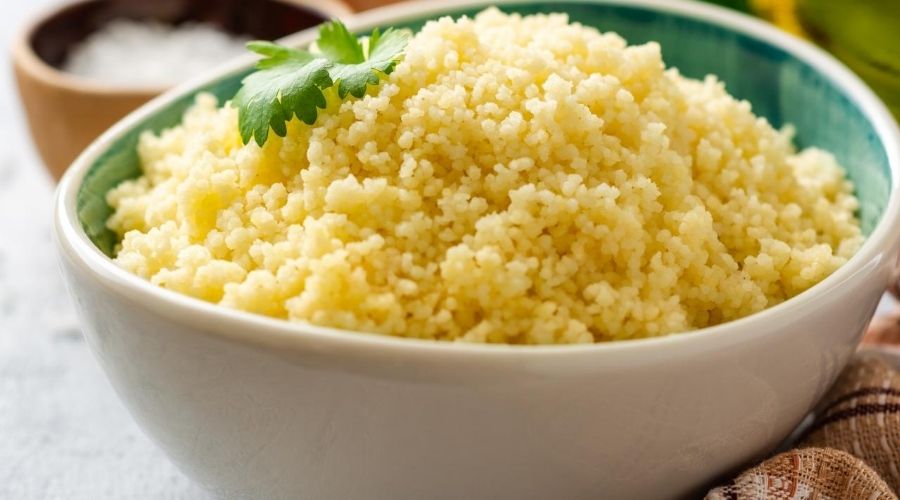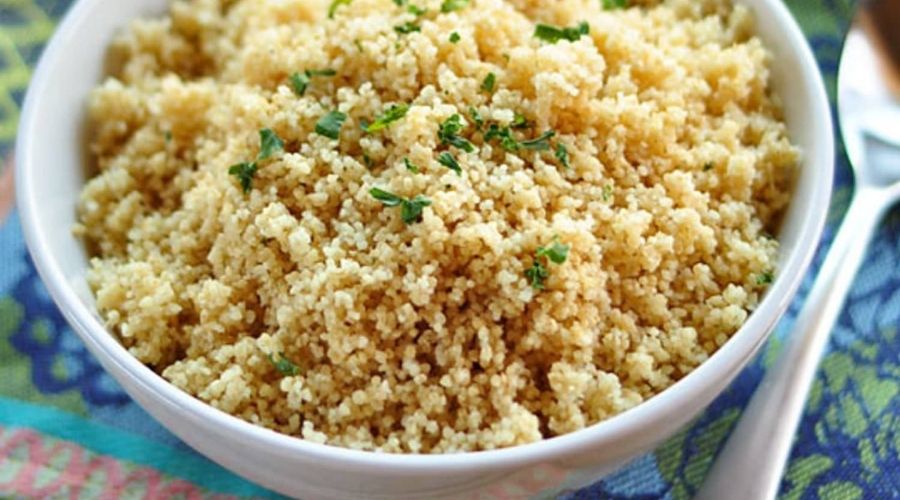Cooked couscous is a versatile and nutritious dish that pairs well with a variety of meals.
Whether you’ve prepared a big batch for meal prep or have leftovers from a family dinner, knowing how to store cooked couscous properly is key to maintaining its freshness, texture, and flavor.
Improper storage can lead to spoilage, which not only affects the taste but also poses health risks.
In this guide, we’ll explore the best methods for storing cooked couscous, so you can enjoy your leftovers or meal prep with confidence.
Why Storing Cooked Couscous Properly Matters
Storing cooked couscous properly is essential for preserving its taste, texture, and safety.
When couscous is not stored correctly, it can quickly lose its fluffy texture, become dry, or even develop an unpleasant taste.
More importantly, improper storage can lead to the growth of bacteria, which may cause foodborne illnesses.
Since couscous is a carbohydrate-rich food, it provides a favorable environment for bacteria if left at room temperature for too long or stored inappropriately.
By refrigerating or freezing cooked couscous in airtight containers, you can extend its shelf life and keep it fresh for later use.
Proper storage also helps reduce food waste, allowing you to enjoy leftovers without compromising quality.
Taking the time to store couscous properly ensures it stays delicious and safe for future meals.
How to Store Cooked Couscous: A Complete Guide

Storing cooked couscous properly is important to maintain its freshness, flavor, and safety.
Whether you have made a big batch for meal prep or have leftovers from dinner, here’s how to store couscous effectively to ensure it stays delicious.
1. Cool the Couscous Properly
Before storing, allow the couscous to cool down to room temperature.
Storing hot or warm couscous directly in the fridge can create condensation, which leads to sogginess and may encourage bacterial growth.
Spread the couscous out on a tray or plate to cool it quickly and evenly.
2. Use Airtight Containers
Once cooled, transfer the couscous into airtight containers. This helps prevent moisture from seeping in, which can cause the couscous to spoil faster.
Airtight containers also help preserve the flavor and texture of the couscous. Glass or BPA-free plastic containers with tight seals are ideal for storage.
3. Label and Date
For proper food management, always label the container with the storage date.
Cooked couscous can last in the fridge for up to 4 to 5 days, so keeping track of the storage date will help you avoid eating food that’s gone bad.
4. Refrigerate
Place the airtight container of couscous in the refrigerator. Ensure that it’s stored at a temperature below 40°F (4°C) to prevent bacterial growth.
The couscous should retain its texture and flavor for a few days when stored in the fridge.
5. Freeze for Long-Term Storage
If you want to store cooked couscous for a longer period, freezing is a great option.
Transfer the couscous into a freezer-safe container or resealable bag, ensuring that you remove as much air as possible before sealing.
Frozen couscous can last up to 3 months. To reheat, let it thaw in the fridge overnight and warm it up in a microwave or on the stovetop.
6. Reheating Couscous
When reheating couscous, it’s important to retain its moisture. Add a tablespoon of water or broth per serving to keep the couscous fluffy.
Use a microwave or steam it on the stovetop until heated through.
7. Avoid Room Temperature Storage
Never leave cooked couscous at room temperature for more than two hours.
This can create an environment where harmful bacteria thrive, increasing the risk of foodborne illness.
By following these simple steps, you can store cooked couscous properly and enjoy it in various meals throughout the week.
Whether refrigerated or frozen, proper storage will keep your couscous fresh, safe, and ready to use.
What to Look for While Storing Cooked Couscous

When storing cooked couscous, it’s important to pay attention to several factors to maintain its quality and safety.
Here are key things to look for:
1. Proper Cooling
Ensure the couscous has cooled to room temperature before storing.
Storing warm couscous can trap moisture, which may lead to sogginess or bacterial growth. Spread it out on a tray for quicker cooling.
2. Moisture Levels
Couscous is prone to becoming dry or overly moist when stored incorrectly. Make sure it’s stored in an airtight container to prevent any excess moisture from entering.
If the couscous seems too dry, add a splash of water or olive oil before reheating.
3. Use of Airtight Containers
Always store cooked couscous in airtight containers or resealable bags.
These containers keep out moisture and prevent the couscous from absorbing other odors from the fridge.
Using proper containers ensures it remains fresh and retains its texture.
4. Label and Date
It’s important to label the container with the date it was cooked. Cooked couscous can be safely stored in the fridge for up to 4–5 days.
Labeling helps you keep track of how long it’s been stored, reducing the chance of consuming expired food.
5. Check for Signs of Spoilage
Regularly inspect the couscous for signs of spoilage, such as an off smell, discoloration, or mold.
These indicate that the couscous has gone bad and should be discarded to prevent foodborne illness.
By paying attention to these key factors, you can ensure that your cooked couscous stays fresh, safe, and ready to enjoy.
How to Choose the Right Accessories for Storing Cooked Couscous

Selecting the right storage accessories for cooked couscous is essential to preserve its texture, flavor, and freshness.
Here’s what to consider when choosing the best storage tools:
1. Airtight Containers
The most important accessory for storing cooked couscous is a high-quality airtight container.
Choose containers that create a strong seal to keep out moisture and air, which can cause the couscous to become stale or spoil faster.
Glass or BPA-free plastic containers with snap-on lids are ideal for this purpose.
2. Resealable Freezer Bags
If you’re planning to freeze couscous for long-term storage, resealable freezer bags are a great option.
These bags help save space in the freezer and are flexible for different portion sizes. Be sure to press out as much air as possible before sealing to prevent freezer burn.
3. Vacuum Sealers
For maximum freshness and extended shelf life, a vacuum sealer can be an excellent investment.
This tool removes air completely, preventing oxidation and moisture buildup, which can degrade the couscous. It’s particularly useful when freezing couscous for several months.
4. Labeling Supplies
Whether you choose containers or bags, it’s important to label each one with the storage date. Use waterproof markers or pre-printed labels to ensure the information stays legible.
Knowing how long the couscous has been stored will help you avoid consuming expired food.
5. Portion Control Containers
If you plan on meal prepping with couscous, consider using portion-sized containers. These smaller containers are great for packing individual servings, making it easier to grab and go.
Choose microwave-safe options for convenient reheating.
By choosing the right accessories, you can extend the shelf life of cooked couscous and keep it fresh, ready for use in future meals.
The right storage tools ensure that your couscous maintains its quality and flavor for days or even months.
How to Tell If Cooked Couscous Is Bad After Storing
It’s essential to check your stored cooked couscous for signs of spoilage before consuming it. Here are key indicators that your couscous may have gone bad:
1. Off Smell
The most noticeable sign of spoiled couscous is a sour or unpleasant odor. Fresh couscous has a neutral scent, so if you detect any strong or off-putting smells, it’s a sign that bacteria have developed, and the couscous is no longer safe to eat.
2. Discoloration
Check the color of the couscous. Freshly stored couscous should maintain a consistent light yellow or beige color.
If you notice any unusual discoloration, such as dark spots or mold growth, it indicates that the couscous has spoiled and should be discarded immediately.
3. Texture Changes
Spoiled couscous may also show significant changes in texture. If the couscous feels excessively slimy, sticky, or mushy, this could indicate bacterial growth or that it’s been stored for too long.
4. Presence of Mold
Any visible mold growth on couscous is a clear sign that it has gone bad. Mold may appear as green, black, or white fuzzy spots.
Even if mold is present in just one area, it’s best to throw out the entire batch to avoid the risk of illness.
5. Taste Test
If the couscous passes the smell and visual checks, but you’re still unsure, taste a small portion.
If the couscous has a sour or off taste, it’s no longer good to eat and should be discarded.
By being aware of these spoilage signs, you can prevent consuming couscous that may cause foodborne illness and ensure that your meals remain fresh and safe.
1. How long can cooked couscous be stored in the fridge?
Cooked couscous can be safely stored in the refrigerator for up to 4–5 days.
Make sure it’s kept in an airtight container to maintain freshness and prevent contamination.
2. Can I freeze cooked couscous for long-term storage?
Yes, you can freeze cooked couscous for up to 3 months.
Store it in a freezer-safe airtight container or resealable bag, and remove as much air as possible to prevent freezer burn.
3. Do I need to add anything to the couscous before storing it?
No, you don’t need to add anything before storing it.
However, if the couscous becomes dry after being refrigerated or frozen, you can add a small amount of water or olive oil when reheating to restore its moisture.
4. How do I reheat stored couscous?
To reheat couscous, add a tablespoon of water or broth per serving and microwave it for 1–2 minutes or reheat it on the stovetop.
This helps retain its fluffy texture and prevents it from drying out.
5. Can cooked couscous be left at room temperature?
Cooked couscous should not be left at room temperature for more than 2 hours. Leaving it out too long can lead to bacterial growth, which may cause foodborne illness.
6. How can I tell if my stored couscous has gone bad?
Signs of spoilage in couscous include a sour or off smell, slimy texture, unusual discoloration, or visible mold.
If you notice any of these signs, it’s best to discard the couscous.
7. Should couscous be stored in the fridge with a lid or uncovered?
Cooked couscous should always be stored in an airtight container with a lid in the fridge.
This helps maintain its freshness and prevents it from absorbing other odors from the refrigerator.
Conclusion
Storing cooked couscous correctly is essential to preserving its quality and avoiding waste.
By following the proper storage techniques—whether you’re refrigerating for short-term use or freezing for long-term storage—you can ensure your couscous stays fresh and flavorful for future meals.
Pay attention to the signs of spoilage, use appropriate containers, and always reheat it correctly to enjoy this versatile dish at its best.
With the right approach, your couscous will stay delicious, and you’ll make the most of every meal.
References
- https://www.themediterraneandish.com/how-to-cook-couscous/
- https://www.loveandlemons.com/how-to-cook-couscous/
- https://www.bbcgoodfood.com/videos/techniques/how-cook-couscous-video
- https://www.onceuponachef.com/recipes/couscous.html
- https://www.thepioneerwoman.com/food-cooking/meals-menus/g39865059/best-couscous-recipes/


